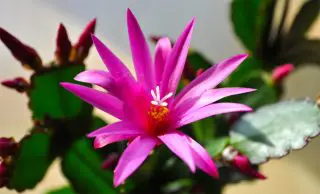Home remedies for watering plants and cut flowers
Plants mean life – and that’s exactly what cut and potted flowers bring into your home. However, the period in which “the green” thrives can be shortened due to various factors. First and foremost are mold, aphids, lack of water and nutrients. Why these things become a danger and what tips, tricks and home remedies for plants help against it, shows this article.
Contents
Cause 1: Lack of water
Sometimes the solution is quite simple: many potted and cut flowers die because they do not get enough water – simply topping up with water, however, is not always the right way. It’s much better to change the water regularly. While with cut flowers you should primarily make sure that the water covers the styles well, with potted plants it always depends a bit on the particular specimen.
While some need moist soil, a “sip” of water every few days is enough for others. The florist can give decisive tips here. Also important for cut flowers: even if this has already been done when buying flowers, the styles should be cut diagonally – ideally with a sharp knife, not scissors. By cutting the plants better absorb the cool wet and remain beautiful and fresh for as long as possible. Also, a vase that is too small can cause the water to not be absorbed well enough absorbed.
Cause 2: Mold
Mold not only robs cut and potted flowers of their vitality, it is also a health hazard – quick action is required. Moldy soil is a dead end, however, so only changing the soil will help. Even moldy cut flowers can rarely be saved.
So precautionary measures are particularly important, even though some home remedies can certainly combat mold: Bird sand: sprinkled on the soil as a spore barrier, bird sand can prevent mold from forming.
Cinnamon: Prevent and cure at the same time – cinnamon is a natural fungus-fighting agent and
also acts naturally on mold on plants and plant soil.
Activated charcoal: One of the few home remedies that not only prevents mold, but also
with a little luck also “heal” can, is activated carbon. Simply sprinkle atomized activated charcoal on the soil for this purpose.
Tea tree oil: A few drops of the oil in the water or on the earth works wonders against mold. Only the strong smell could disturb thereby.
Cause 3: Lice
Aphids are extremely annoying – but much worse is that they destroy plants in no time. However, a few simple home remedies can help against the little buggers. Especially effective are things like:
Nettles:
Aphids hate stinging nettles. This fact must be exploited. To do this, simply soak nettles in water (ratio 1:10) and spray the plants with it.
Lavender:
The essential oils of lavender smell nice to human noses – but lice are not for it. If you place lavender in the vicinity, you will rarely have an aphid problem.
Lice problem.
Soft Soap:
Soft soap dissolved in water beforehand also helps fight lice.
Ladybugs:
All pests have natural enemies that are rarely found in homes, so louse & co. can spread freely. Ladybugs, for example, are a declared enemy of aphids. Especially for garden plants, this fact can be quite useful.
Cause 4: Nutrient deficiency
Nutrient deficiency is particularly difficult to detect – simply because it cannot be seen externally.
However, when the other causes are ruled out, flower heads often droop because they are
lack the right nutrients. To get them back on track, the following tips can help:
Sugar:
Sugar provides energy – even for cut and potted flowers. A small pinch quickly revives the plants. However, care must be taken with the dosage. If you overdo it, you create the perfect environment for rotting bacteria.
Nutrient powder: You know the little sachets that often come with flower bouquets. Stir the water briefly when adding them so that the powder is well distributed.
Mineral water: Carbonic acid in mineral water is like a kind of fertilizer that brings many important minerals – a sip of it is good for just about all houseplants.
Lime – or not lime: Some plants, such as ferns, want less lime, others need more to grow perfectly. Usually, tap water contains enough lime – but some plants find it too much. So, if the tap water is particularly chalky, it may be necessary to add a small splash of lemon or vinegar to the water. This allows nutrients to be better absorbed.
Conclusion:
There can be various reasons for plants to breathe their last too soon. To prevent this from happening and to ensure that friends of potted and cut flowers can enjoy their green companions for as long as possible, the plants should be checked regularly for the above-mentioned things and countermeasures introduced.


